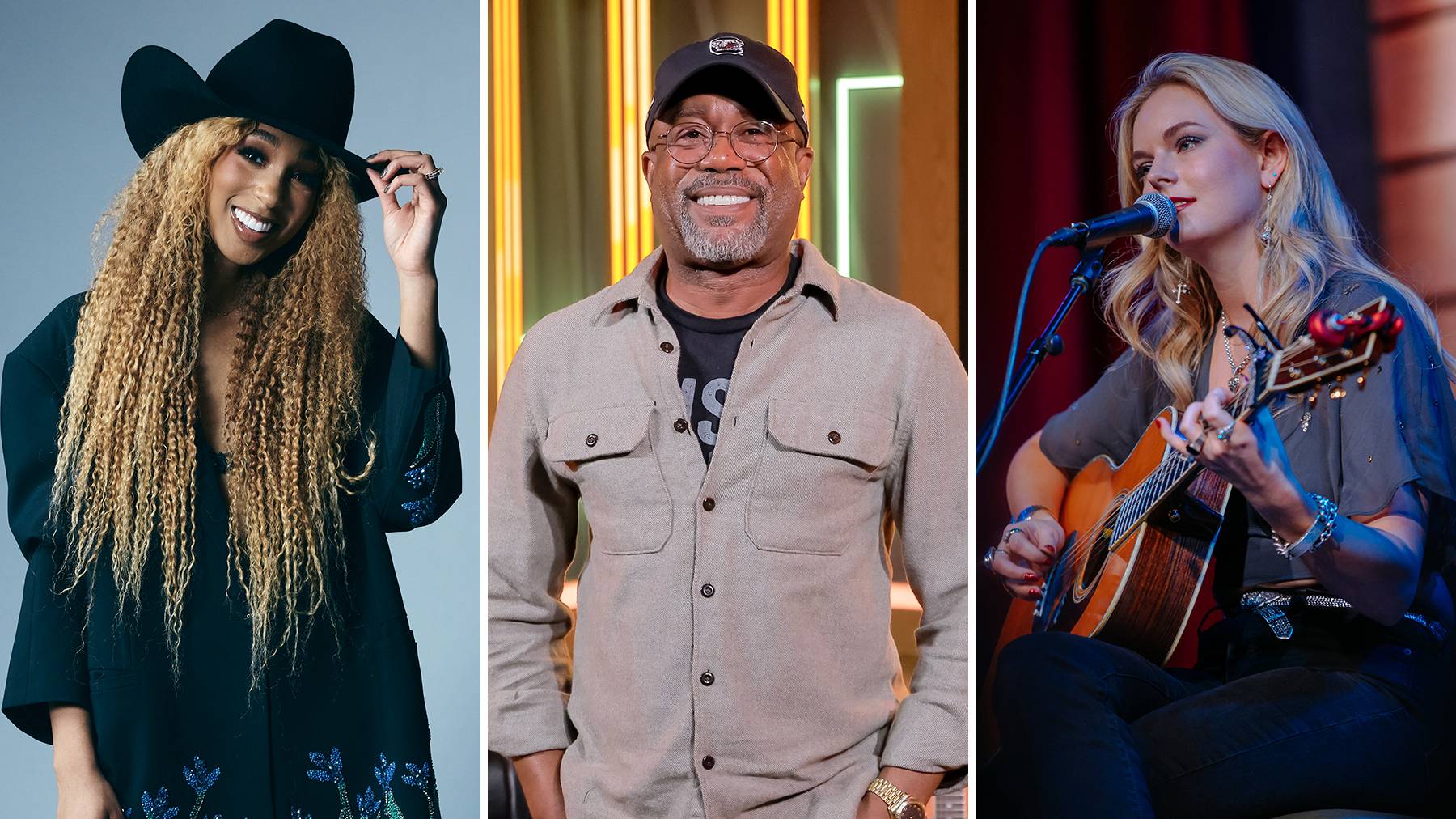Restless Heart Reunite for 'Still Restless'

Between 1985 and 1994, Restless Heart racked up six No. 1 singles and four gold albums. In the process, the five-man band plastered country radio playlists with such hits as "That Rock Won't Roll," "Why Does It Have to Be (Wrong or Right)" and "Wheels." Then, in the early '90s, the group began to fall apart.
Lead singer Larry Stewart bowed out in 1992 to pursue a solo career. A year later, keyboardist Dave Innis departed. That left guitarist Greg Jennings, drummer John Dittrich and bassist Paul Gregg to carry the load. Although the band continued with various replacements for a few seasons, it never regained its momentum.
Now all five founding members are back with a new album, Still Restless, on Koch Records. In place of its original producers, Tim DuBois and Scott Hendricks, the band cast its studio lot with Kyle Lehning (of Randy Travis fame) and Mac McAnally (who also produces Jimmy Buffett).
A few weeks before the album was released, Stewart and Dittrich sat down with CMT.com at Koch's Nashville office to talk about the project and explain how the band had gotten together again. Although the band members don't revisit their past hits for the new project, the album does include a couple of familiar tunes, notably John Lennon and Paul McCartney's "The Night Before" and McAnally's "Down the Road," a song he charted himself for Warner Bros. Records in 1990.
Stewart notes the band's reunion was a long time coming.
"We were offered [a deal] to put out a greatest hits package over at RCA where we'd worked for so many years," he says. "That was in '98. Four of the five of us got back together and put out the greatest hits thing and recorded two new songs with our old producers, Tim DuBois and Scott Hendricks. We ended up getting offered the Vince Gill tour to support that. So we toured with Vince for year or year and a-half and did some other shows on our own for a year to two years. Then we took a year off."
One day, while the group was still on hiatus, Stewart got a call from Hendricks, who was having lunch with Innis.
"Dave had been so far removed from all of us here for so long," Stewart explains. "And, all of a sudden, he comes back to town. It wasn't a real nice parting, you know, when he left. Scott called me back and said, 'Man, Dave's doing great.' So I called Paul [Gregg] and told him, 'You're not going to believe who Scott had lunch with.' He said, 'Give me his number.' Paul called Dave, and they talked to each other all day -- it seemed like. They laughed and cried and buried the hatchet. Over the next days and weeks, we all talked [about] what it would be like for the five of us to get back together. ... When we rehearsed, it was awesome from the very first note."
Stewart estimates the band spent about a year and a-half gathering material, rehearsing and recording the album. "It took us a while," he says, "to figure out what we were going to do and who we were going to do it with." Neither DuBois nor Hendricks volunteered to produce the new album, Stewart admits. "They had their own things going, and we had our own things going."
Adds Dittrich, "I think we were also at a point where there were some [other] people we wanted to work with, that we admired, Mac and Kyle being two of them. ... Originally, it was thought that we wouldn't burden one producer with the whole project. When Greg [Jennings] approached Kyle with the idea of doing it, he said we were also talking to Mac, thinking maybe they could do it half and half. Kyle said, 'Heck, why don't Mac and I just do it together?'" And that's what they did.
McAnally provided three songs for the album, Stewart co-wrote three others and John Scott Sherrill -- who penned the band's first No. 1, "That Rock Won't Roll" -- also contributed a song. Dittrich says the band was looking for a "fun cover" to record when they made the Lennon/McCartney pick.
"Greg came up with the 'The Night Before,' which we all thought was a good song," Dittrich recalls. "I think we tried six or seven takes on it, trying to copy the record, and we couldn't do it. Finally, Mac just said, 'Oh, they were the Beatles.' We were about ready to scrap it, but he got his 12-string [guitar] down and started a fingerpicking thing that was a little bit quicker and said, 'Hey, come here and sing to this.' I sang to it -- and voila! There was the idea we were looking for."
The dissensions that contributed to the band's breakup are gone now, Stewart and Dittrich agree.
"We love playing together," Stewart says. "That's why we decided to make a record. It's so much more relaxed and a little more mature. We feel like we're playing and singing better than we did." Besides, Dittrich notes, "It's not like we jumped right back to playing a hundred shows a year. I don't know if some of us would survive a hundred shows a year anymore. It's been a nice pace. It really has -- between 30 and 40 shows a year since 2001. It's just been a real nice mix."
Lehning found it a joy to work with the band.
"Those guys are all really good musicians," he says. "Anytime you're dealing with good players, they're always somewhat competitive. And when you're competitive, that means you're paying attention to what's been going on [musically]. All of them -- Dave Innis, Greg, Paul Gregg, Dittrich, Larry, all of them -- were aware of records that had been made since they disbanded. So it wasn't like having to dust anybody off. We really sat down and just started going. I think they've evolved very naturally. It's hardly as if they've been gone."





